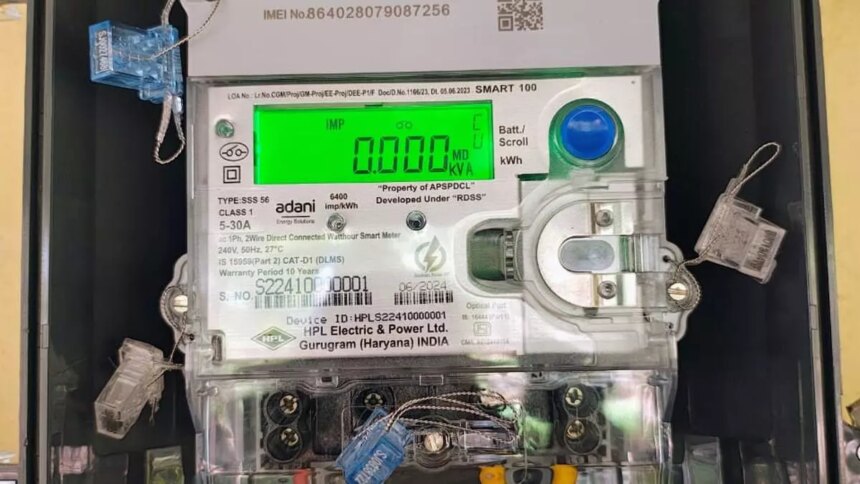Once seen as a leader in power sector reforms, Gujarat is now lagging behind less developed states such as Bihar, Assam, and Chhattisgarh in the deployment of smart meters. These modern devices are intended to enhance the operational efficiency of state-run electricity distribution companies.
Since the launch of the Smart Metering National Project (SMNP), Gujarat has installed over 219,000 smart meters, which accounts for just over 1% of the 16.4 million smart meters designated for installation in the state. In contrast, Bihar has completed over 82.5% of its sanctioned installations, highlighting Gujarat’s slow progress and public resistance to the smart meter initiative.
The Indian government introduced the Revamped Distribution Sector Scheme (RDSS) in July 2021 to bolster the operational efficiency and financial stability of distribution utilities (DISCOMS/Power Departments), aiming to ensure reliable and quality electricity supply. A significant component of this scheme is the consumer smart metering initiative. Out of the total 197.9 million smart meters approved for installation nationwide, only about 3.7% or 7.297 million meters had been installed as of November 29, 2024.
Data presented in the Rajya Sabha by the Union Government reveals that no smart meters have been installed in 12 states, including those ruled by opposition parties such as Tamil Nadu, Kerala, Jharkhand, and Punjab. Notably, some BJP-led states, including Rajasthan, Goa, and Manipur, have also yet to commence their installations as of November 2024.
Assam currently leads the country in the number of smart meter installations, having implemented 2.289 million units, which represents 36% of its total sanctioned meters. Bihar ranks second, followed by Madhya Pradesh, which has installed over 1.013 million meters (8% of its total). Other states like Chhattisgarh (561,000), Andhra Pradesh (385,000), Maharashtra (355,000), and Uttar Pradesh (379,000) also surpass Gujarat in the number of installations.
Amid public protests in May 2024, the Gujarat government announced that it would not “forcibly” replace existing electricity meters with smart meters. This decision came after numerous complaints from residents about overcharging linked to the new devices. An official later clarified to BusinessLine that the installation of smart meters in Gujarat is now restricted to new electricity connections and solar rooftop projects.
Gujarat installed over 40,000 smart meters in December 2024, with the Uttar Gujarat Vij Company Limited being the leading installer at 140,000 meters. In contrast, Paschim Gujarat Vij Company Limited, which serves the Saurashtra region, recorded the lowest with 28,200 installations.
The Union government, in its Rajya Sabha response, emphasized that a key advantage of smart meters is their capacity to provide accurate billing information. By automatically recording and transmitting consumption data, smart meters eliminate inaccuracies usually associated with manual readings. According to the Central Electricity Authority’s (Installation and Operation of Meters) (Amendment) Regulations, 2022, all consumers in areas with reliable communication networks will be equipped with smart meters operating in pre-payment mode, adhering to the relevant Indian Standards (IS), the statement concluded.










